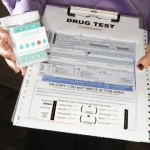Our church is sponsoring an outpatient program, and we want to use all evidence-based practices. I looked up a list on the government website and there’s 300 of them. Which ones work the best?”
If only I knew for sure. You should be commended for your efforts, but this is not like going to the grocery store and checking out the cereal. More complicated than that.
First question any new program should ask — who’s our target audience? Think in terms of age, gender mix, culture, drug of choice, severity of problem, socioeconomics, co-occurring mental health disorders, etc. The idea is that your program works best when it ‘fits’ your clients.
Second, it’s important to understand what an EBP is. It’s an approach that has been found to be effective versus no treatment, in at least a couple of well-designed controlled studies, and also fits some other criteria associated with effectiveness. So far so good. But it’s not a guarantee that a program will produce the best outcomes in your particular situation.
For instance, I was looking at an EBP the other day which was praiseworthy because 38% of participants got the desired outcome, versus 33% in the no-treatment control group. So if we put 100 folks through the program, the EBP only made a difference for five of them. Statistically significant, but there might be other things you could change that will make more of a difference in your long-term results. Like providing transportation for some clients, or feeding homeless people lunch, or getting a psychiatric nurse to volunteer some time doing pro bono assessments.
Doesn’t mean it’s not worth the effort to use an EBP, just that there’s more to success than that. A lot more, frankly. No matter what model you choose, you’re going to want to track outcomes to see how it’s working with your client census. Can’t rely on someone else’s results.
Spend some time reading on that website, and there are also some widely used commercially produced models out there. Also, you might want to visit your local or state substance-abuse or behavioral health authority to ask them what they’ve seen working well with populations like yours.














EBP is a great starting point and as you gain more experience you are able to work out what is working best for your community and individuals.
Hi Timothy — I think you have to purchase the Matrix to use it, right? We bought ours through Hazelden, I believe. About $700, if I recall, but correct me if I’m wrong. Then you need additional training, at least in our state, for supervisors and key staff. And periodic fidelity checks, I think.
The agency I work for uses IDDT. In the IOP I run we use the Matrix Model. Check out SAMHSA.gov for many frre resorces. I can email Matrix manuals to any one. contact me at timothy.hicks@cccohio.com.
This was published a few years ago (and gets very technical) but is also, I think, very helpful for someone trying to understand what “science says about addiction treatment.” http://www.atforum.com/SiteRoot/pages/addiction_resources/EBAM_16_Pager.pdf